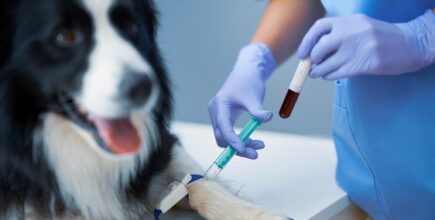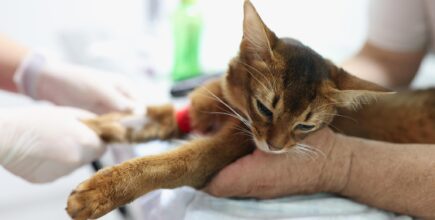As the temperatures rise, our dogs face unique challenges that can quickly turn dangerous. Heat stroke is a serious threat that every dog owner needs to be aware of, especially during the sweltering summer months. At Bayshore Veterinary Hospital in Holmdel, NJ, we’re committed to educating our clients about the risks of dog heat stroke and how to protect your furry friend from this potentially life-threatening condition. Whether you’re out for a stroll or just relaxing in the backyard, knowing how to prevent heat stroke could make all the difference. If you ever have concerns about your dog’s safety in
Read More
Archives for Uncategorized
The Importance of Dog Blood Testing
When it comes to keeping your dog healthy and happy, understanding their internal health is just as important as making sure they have plenty of food, water, and exercise. That’s where dog blood testing comes into play. It’s a simple yet powerful way to check on your pet’s health, identify issues early on, and ensure they receive the care they need. At Bayshore Veterinary Hospital in Holmdel, NJ, we’re here to provide you and your dog with top-notch care and support. If you have questions about dog blood testing or need to schedule an appointment, give us a call at
Read More
Cat Blood Work Explained: Testing Your Cat’s Health
When it comes to keeping your cat healthy and catching any potential health issues early, cat blood work is an invaluable tool. At Bayshore Veterinary Hospital in Holmdel, NJ, we understand how important your cat’s health is to you. That’s why we offer a range of blood work services designed to monitor and manage your cat’s health effectively. This blog will dive into the what, why, and how of cat blood work, shedding light on its significance in maintaining your cat’s health. If you’re curious to learn more or need to schedule an appointment for your cat, give us a
Read More
Dog Ate Fertilizer: Next Steps and Emergency Protocols
When your dog gets into something they shouldn’t, like fertilizer, it can be a scary moment. You want to make sure they’re safe and get the right help fast. That’s why we’re here to talk about what you should do if your dog ate fertilizer. It’s important to act quickly and know the steps to take to ensure your dog’s safety. If you’re worried or need more details after reading this, please reach out to us at Bayshore Veterinary Hospital in Holmdel, NJ, by calling (732) 671-3110. Our team is ready to answer your questions or set up an appointment
Read More
- «Previous Page
- 1
- 2
- 3
- 4
- 5
- …
- 23
- Next Page»




